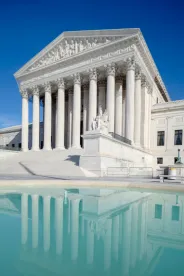Two weeks ago, the jurisprudential ramifications of Justice Scalia’s passing were felt. The incomplete Court decided Hawkins v. Community Bank of Raymore, a case from the Eighth Circuit questioning whether a guarantor is an “applicant” as defined in the Equal Credit Opportunity Act. The Eighth Circuit decision in Hawkins, which held that a guarantor is unambiguously not an applicant, is in direct conflict with the Sixth Circuit’s decision in a factually similar case: RL BB Acquisition, LLC v. Bridgemill Commons Dev. Grp., LLC. However, the Supreme Court, equally divided, affirmed the decision of the Eighth Circuit, a decision that fails to answer the underlying questions regarding the ECOA.
At the core of the Hawkins and Bridgemill cases are a challenge to the ECOA provision that gave standing to “applicants” in the credit process to seek remedy for inappropriate marital status discrimination. In each case, the plaintiffs were the spouse of individuals who were seeking to get financing from a bank. In each case, the spouse was required guarantee the commercial loan simply because of their status as a spouse, a practice that, the plaintiff argued, constitutes improper marital status discrimination. However, the financial institutions argued that only applicants have standing under the ECOA and that the language of the statute was unambiguous: guarantors are not applicants. The banks’ argument directly challenged prior regulation by the Federal Reserve Board, which found the statute ambiguous regarding the issue drafted regulation that included guarantors as applicants. Central to each case are the questions whether the guarantor is an applicant under the ECOA and whether the Federal Reserve Board had the authority to interpret the statute as saying that guarantors are applicants.
The Eighth Circuit, whose opinion held that the guarantors are not applicants and that, because the ECOA language is unambiguous, the Federal Reserve Board did not have the authority to regulate the issue. Conversely, the Sixth Circuit found that the statutory language was ambiguous and that the Federal Reserve Board was making an appropriate interpretation of the statutory language by deciding that guarantors are applicants. The Sixth Circuit opinion has not been appealed to the Supreme Court.
Because of the nature of the affirmation, the Hawkins affirmation does not carry any precedential value. Additionally, this issue is likely to arise again and the four-four split indicates that any new appointment to the Supreme Court will be the deciding voice of the court. Given the implication of Sixth Circuit jurisprudence, the issue carries significant weight and we will continue to monitor the Supreme Court’s actions.
Justin Jennewine is the author of this article.



 />i
/>i
